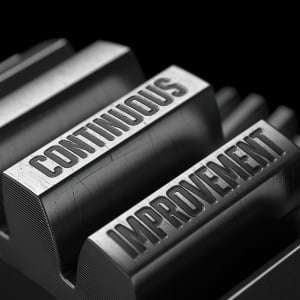
5 Ways that a Skilled and Professional CATI Interviewer Improves Market Research
 Computer-assisted telephone interviewing — or CATI — is a method of obtaining qualitative market research data by integrating four core components: computer software, a script, a CATI interviewer and, of course, a participant. Here is how each of these elements work together to generate valuable market research:
Computer-assisted telephone interviewing — or CATI — is a method of obtaining qualitative market research data by integrating four core components: computer software, a script, a CATI interviewer and, of course, a participant. Here is how each of these elements work together to generate valuable market research:
The CATI interviewer contacts the participant by phone at a scheduled time, and begins asking questions that are supplied by the software. These questions are standardized and structured, which means that participants get to choose from pre-set answers (e.g. “would you strongly disagree with that statement, disagree with that statement, agree with that statement, or strongly agree with that statement”).
As the answers are received, the CATI interviewer inputs them into the computer software in real-time. This is why it is so important that the questions are standardized and structured — otherwise the interviewer would have to function like a court stenographer (especially since some talkative participants could spend several minutes answering a single question!)
As the CATI interviewer captures the answers, the software automatically adjusts based on pre-set variables, such as information that is known about the participant (e.g. purchase history, demographic data, etc.). What’s more, the software adjusts based on the answers themselves, in order to improve data hygiene. For example, the software can be programmed to detect if a participant gives conflicting answers for two similarly-worded questions — even if they are not asked in sequence — and as a result, generate additional questions in this specific line of inquiry.
Now, in light of the above simplified workflow, CATI may seem like a fairly straightforward and simple process. After all, the software seems to be doing a lot of the heavy lifting so is a skilled professional CATI interviewer really necessary? In a word: YES!
This is because participants are not machines: they are human beings. That means they can — and many will — struggle to stay focused, to answer questions fully, or remain engaged throughout the process (i.e. some will simply hang-up the phone if they are frustrated, foregoing any commitment they have made and/or incentive they have been promised). A skilled and professional CATI interviewer has the training and ability to minimize these risks, and therefore maximize results and ROI. Here are 5 key reasons why:
- A skilled and professional CATI Interviewer knows how to establish and build rapport over the phone — which is much more challenging than in-person, where body language is factored into the equation.
- A skilled and professional CATI interviewer knows how to ask questions with the appropriate emphasis. The importance of this cannot be underestimated, since participants are hearing the questions — not seeing them (only the CATI interviewer is seeing them).
- A skilled and professional CATI interviewer subtly — but firmly — controls the tempo and tenor of the engagement. This is especially important if the participant is confused or frustrated; which may not be articulated as such. For example, a qualified interviewer will notice if a participant starts speeding up their answers, which could be a sign that they are growing impatient, bored, or are getting annoyed at what they perceive are questions that are too similar.
- During breaks and intervals in the survey — including those that the participant spontaneously and arbitrarily creates — a skilled and professional CATI interviewer can ask additional questions or provide guidance to facilitate a successful experience.
- A skilled and professional CATI interviewer ensures that the participant is thanked and their efforts are acknowledged at least at the beginning and end of the survey, and possibly during the survey as well (as appropriate). This is extremely important — not because participants need to be “stroked,” but because they can start to perceive that they are being exploited or taken advantage of to some degree (obviously this is not happening, but that does not matter: for participants, perception is truth and if they start to believe it, it will become a fact for them that, naturally, makes them edgy and unhappy).
Learn More
At Communications For Research, all of our CATI interviewers must pass a rigorous training program based on our in-house curriculum, as well as best practices endorsed by the Market Research Association. We also record and monitor all CATI interviews for quality assurance purposes, and to confirm that we are consistently meeting our high standards for performance and results.
To learn more, contact the Communications For Research team today to speak with our co-CEO Colson Steber about how we can help with your CATIs.
For more information on how to communicate the value of market research to your clients, download our FREE eBook:



